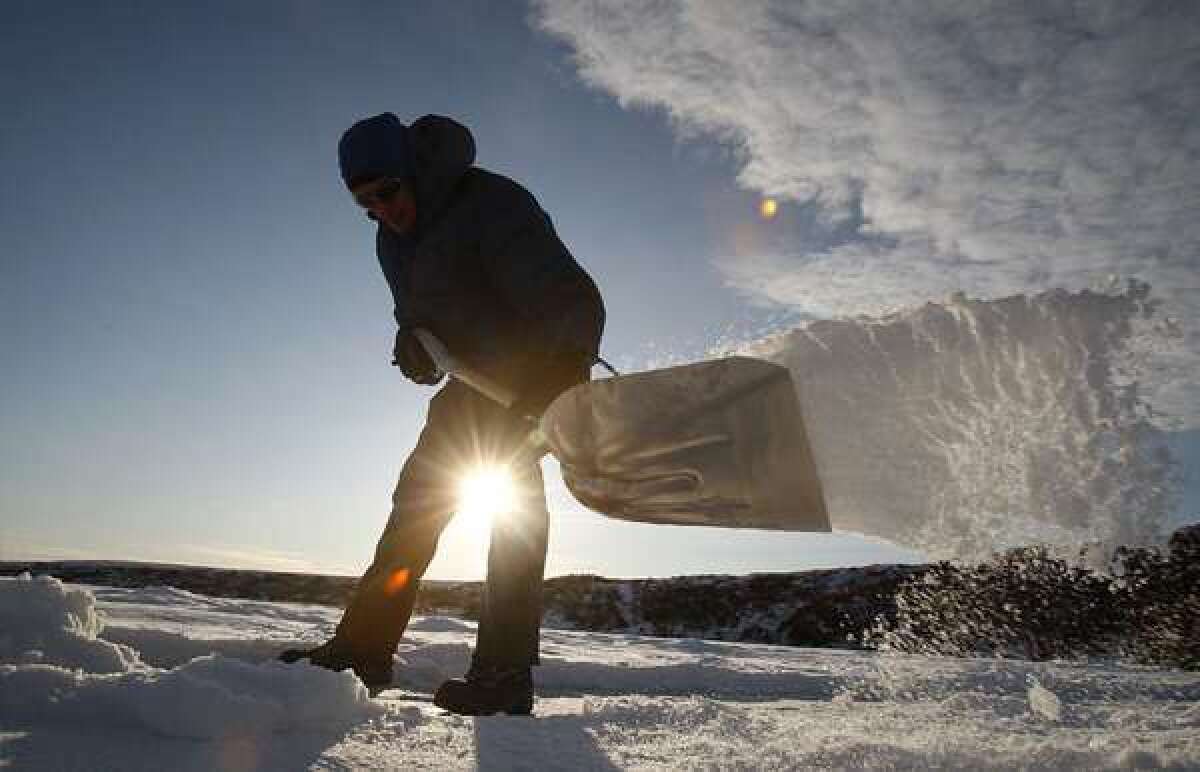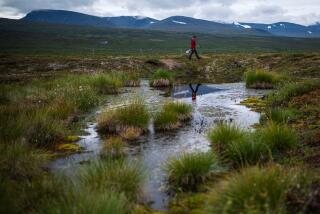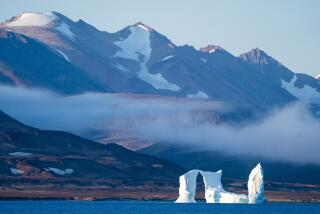Thawing permafrost may amplify global warming, U.N. reports

- Share via
Think of broccoli that you’ve got in the freezer. As long as it’s frozen, it will remain stable for years. As soon as you pull it out, it’ll go mushy and soon begin to unleash the stench of decay.
That’s one way Kevin Schaefer likes to describe what’s happening to all the leaves and roots and other plant material locked in the frozen soils of the arctic tundra and forests since the last Ice Age.
As the planet warms, this permafrost is thawing, releasing huge amounts of carbon and methane, Schaefer explains in a new report. The United Nations Environment Program released the report Thursday to prod negotiators gathered in Doha, Qatar, to come up with a new international treaty to rein in rising greenhouse gases warming the planet.
The report warns that warming permafrost, which underlies nearly one-quarter of the Northern Hemisphere, could release twice as much carbon dioxide as is currently stored in the atmosphere. “Permafrost is one of the keys to the planet’s future,” said Achim Steiner, executive director of the U.N. Environmental Program.
If its frozen organic matter thaws, he said in a statement, “it would amplify global warming and propel us into a warmer world.”
“Arctic temperatures are expected to warm at twice the global average rate, accelerating the thawing and creating a feedback loop that could account for up to 39% of total emissions,” according to the report written by Schaefer and other authors.
“Once the organic matter thaws and decays away, there is no way to put it back into the permafrost,” said Schaefer, a scientist at the University of Colorado’s National Snow and Ice Data Center.
The report recommends that the Intergovernmental Panel on Climate Change do a special assessment of the permafrost feedback and weave that into its projections for global warming. Without it, the report said, the projections about rising temperatures will be too conservative and negotiators will not have the scientific basis to formulate policies to keep the planet from warming above 2 degrees Celsius.
It’s one of many studies being released in Doha to spur action. A report from the World Meteorological Organization said that 2012 is shaping up to be one of the nine warmest since records began more than a century and a half ago. Another study suggests that sea levels may be rising considerably faster than expected.
More than 17,000 politicians, diplomats, scientists and environmentalists have converged in the Qatari capital for a two-week U.N. climate talk to forge an agreement that would replace the Kyoto Protocol, a legally-binding emissions cap that expires this year.






